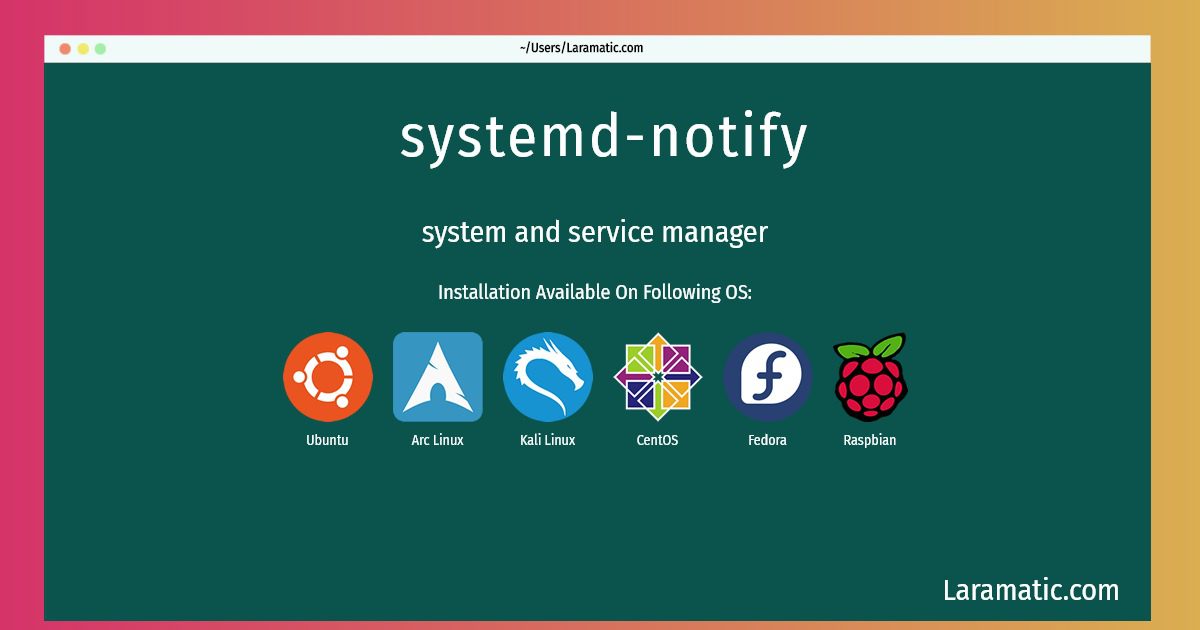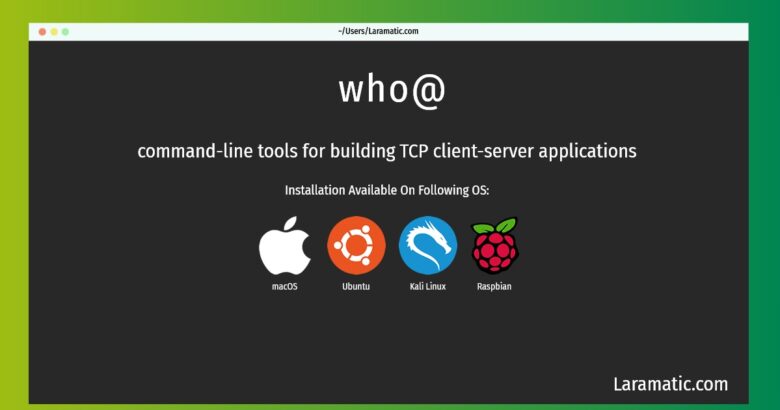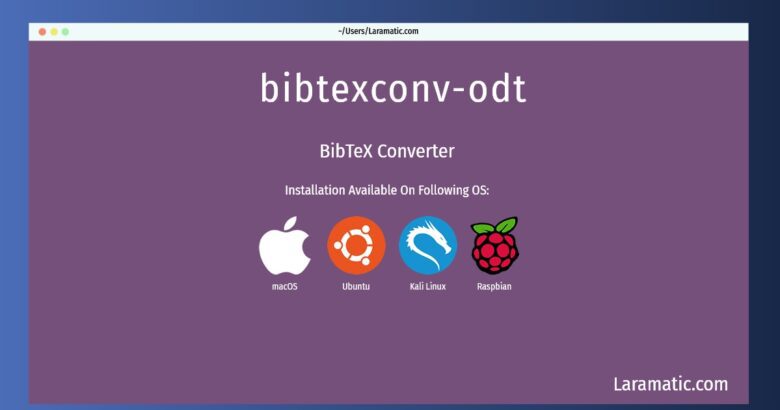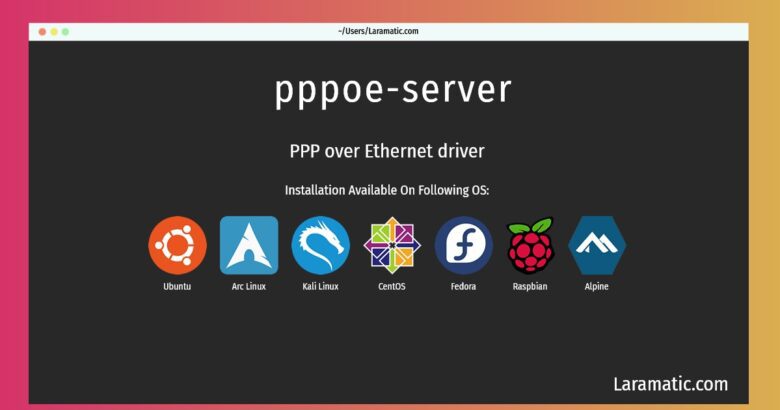How To Install Systemd-notify On Debian, Ubuntu, Arch, Kali, CentOS, Fedora And Raspbian?
Install systemd-notify
-
Debian
apt-get install systemdClick to copy -
Ubuntu
apt-get install systemdClick to copy -
Arch Linux
pacman -S systemdClick to copy -
Kali Linux
apt-get install systemdClick to copy -
CentOS
yum install systemdClick to copy -
Fedora
dnf install systemdClick to copy -
Raspbian
apt-get install systemdClick to copy
systemd
system and service managersystemd is a system and service manager for Linux. It provides aggressive parallelization capabilities, uses socket and D-Bus activation for starting services, offers on-demand starting of daemons, keeps track of processes using Linux control groups, maintains mount and automount points and implements an elaborate transactional dependency-based service control logic. systemd is compatible with SysV and LSB init scripts and can work as a drop-in replacement for sysvinit. Installing the systemd package will not switch your init system unless you boot with init=/bin/systemd or install systemd-sysv in addition.
Installing systemd-notify command is simple. just copy one of the above commands for your operating system and paste it into terminal. This command is available for Debian, Ubuntu, Arch, Kali, CentOS, Fedora and Raspbian operating systems. Once you run the command it will install the latest version of systemd-notify 2024 package in your OS.







